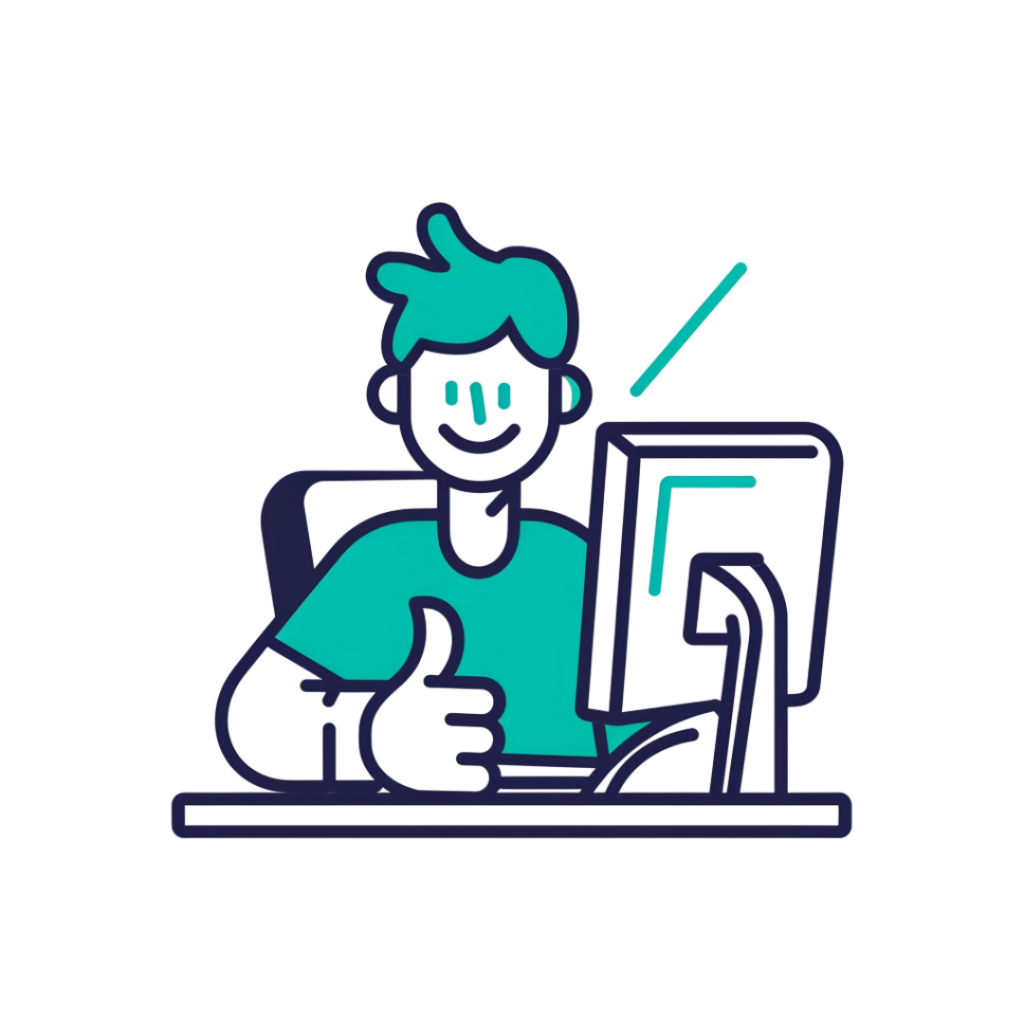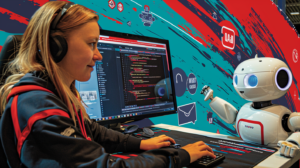QA Specialist
260 Hours / 6-7 Months, Part Time Program
This part-time Quality Assurance (QA) Specialist program features expert instruction, hands-on projects, AI-driven methodologies and tools, and a real connection to the industry to get graduates hired.
Software Developers are putting out new software products practically every day! However, they may find that having an additional specialist responsible for looking for bugs or problems enhances the overall software deployment experience.
QA Specialists are an integral part of any development team. They are responsible for ensuring the quality of the software product by implementing rigorous testing and analysis, preferably from the early stages of development, to minimize bugs and failure points.
Crucially, our program integrates the use of advanced Artificial Intelligence tools in the training process. This enables learners to understand and apply AI-driven methodologies to optimize testing scenarios, automate error detection, and enhance the overall quality assurance process, harnessing the power of Artificial Intelligence to ensure product excellence.
Enable Students to Improve The World’s Digital Experiences And Software Usage
Through using different software assurance methodologies, generating testing reports, running queries, and conducting data and HTML analysis, students will have the power to enhance and improve any software product imaginable.
Open Doors With Industry Connections
Equip students to succeed in a rapidly expanding field with help from our network of QA experts, instructors, hiring partners, and alumni. The QA Specialist curriculum was created in collaboration with the industry’s leading companies to make our programs as relevant as possible to the local industry’s needs, assuring graduates will be job-ready as soon as the program ends.
Guide Students to Deliver a Professional Project
Throughout the program, practical skills in QA testing, basic data concepts, and software testing across web, cloud, and mobile platforms as well as soft skills like leadership and problem solving are acquired through the completion of large-scale projects. Students will gain hands-on experience through workshops and masterclasses, compiling a portfolio of projects designed to reinforce the various concepts and technologies students have learned in each unit.
Who is the Program for?
The QA Specialist program is the ideal solution for driven and motivated individuals, with or without previous tech background, who wish to advance their career in the tech sector.
Top Notch Professionals
This unique program was built by a professional team made up of the leading experts in Quality Assurance, with vast knowledge and experience in training too.

Eran Lasser
CEO of Wawiwa
Eran is a tech education entrepreneur with over 20 years of experience. Eran founded and managed four IT training companies: John Bryce Training (Israel), TRIG (China), JB-IQsoft (Hungary), KocBryce (Turkey). Eran also partnered to establish DAN.IT Education (Ukraine), Techub (Georgia), and more. In addition, Eran managed Mentergy, which provided e-learning and distance learning solutions. Over the years, he was responsible for the reskilling of more than 50,000 individuals now working as tech professionals.



Daniel Anderson
Chief Training Officer
Daniel is responsible for updating state-of-the-art topics in the company’s tech training programs, and for maintaining its training methodologies. Daniel was the Chief Trainer at the Israel Defense Force’s Tech Training Center and is a graduate of the IDF training process. He develops and delivers a wide range of programming courses, and is a Full-Stack Developer and Data Scientist.


Yonit Trabelsi-Itzhaki
Head of Quality Assurance Programs
Yonit is a highly accomplished QA professional and practical engineer. She has held a variety of roles, including System Analyst, Product Manager, Project Manager, and QA Manager, leading testing teams across multiple companies. Yonit also founded her own company, Q-ACT, which provides consulting services for software companies in Quality Assurance, Quality Control, and Testing.


We Measure Success by Employability
Tech training for us is not the end goal – it’s just the beginning. At Wawiwa, we measure success by the employability of our graduates. Our programs are built with that goal in mind: train students to become job-ready and help them land a lucrative tech job upon graduation.
This employability focus delivers results around the world – over 70% of Wawiwa graduates land a tech job within two months of graduation.
Program Syllabus
- Introduction & Basic Concepts to SW systems
- Introduction to Windows OS
- Software Development Lifecycle Models
- Fundamentals of Testing
- STLC (Testing Process)
- Test Strategy
- Test Types & Test Levels
- Testing Techniques
- Working Environment
- Test Execution & Defect Management
- Test Planning and Estimation – STP
- The test documents – STR
- ISTQB Preparation
- Working with AI
- Working with Jira
- Agile Software Development
- Fundamental Agile Testing - Principles, Practices, and Processes
- Agile Testing Methods and Techniques
- Tools in Agile Projects
- SQL – Structured Query Language and Database
- Working with Linux
- Virtualization
- HTML, CSS, JS, Postman
- API Testing with Postman
- Rest APIs with Json
- Automation Fundamentals
- Selenium Basics
- Testing Integration
Read Our Blogs...

Dotting the I’s and Crossing the T’s: The Job Role of Quality Assurance Specialists
Software development is a meticulous process that requires attention-to-detail and precision. Luckily, QA Specialists are there to make the process easier.

QA and Automation Specialist Role: Your Entry Ticket to the Tech Industry
Quality Assurance (QA) and automation ensure that software is functional, reliable, and efficient. Imagine launching a new app only to find out it’s riddled with bugs—it’s every developer’s nightmare! That’s where QA and automation come into play, saving the day

When Tech Teams Tick: The Creation of Digital Products
The technology industry is home to a wide array of positions. When Managers, Designers, Developers, and other tech specialists come together with a unified purpose, the digital products they release are truly incredible!
